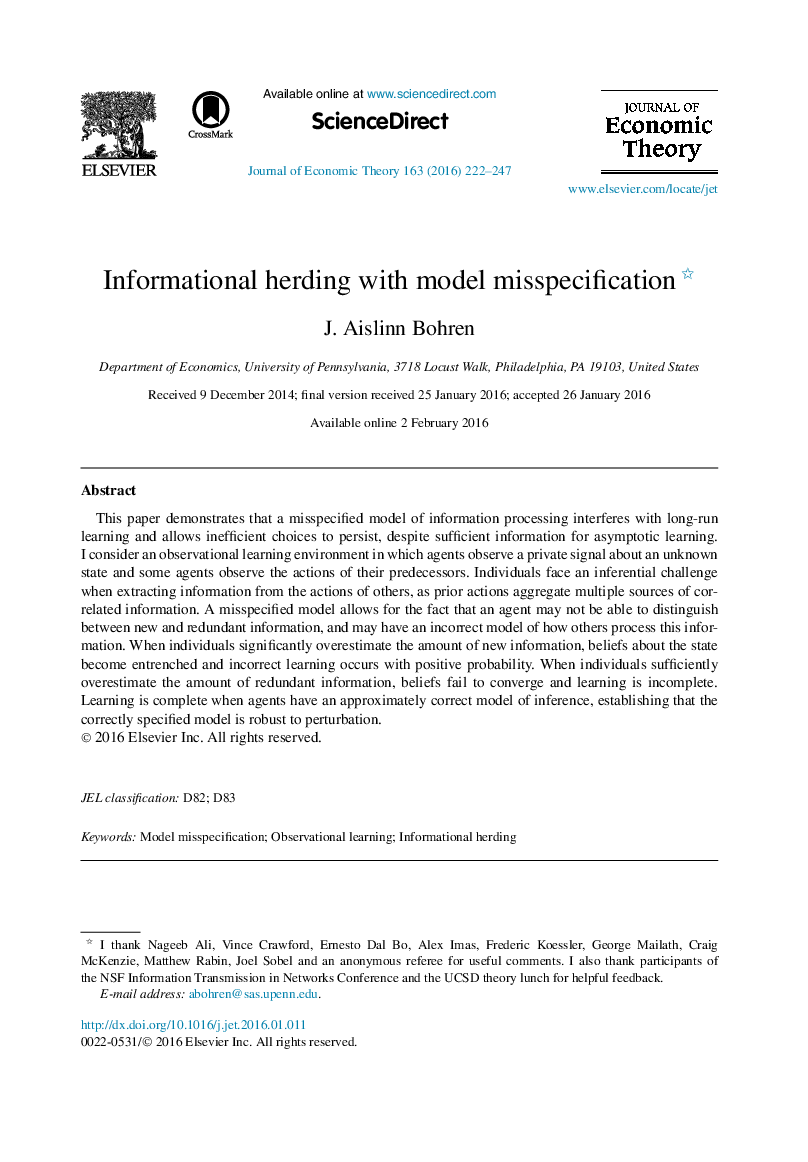| Article ID | Journal | Published Year | Pages | File Type |
|---|---|---|---|---|
| 956671 | Journal of Economic Theory | 2016 | 26 Pages |
This paper demonstrates that a misspecified model of information processing interferes with long-run learning and allows inefficient choices to persist, despite sufficient information for asymptotic learning. I consider an observational learning environment in which agents observe a private signal about an unknown state and some agents observe the actions of their predecessors. Individuals face an inferential challenge when extracting information from the actions of others, as prior actions aggregate multiple sources of correlated information. A misspecified model allows for the fact that an agent may not be able to distinguish between new and redundant information, and may have an incorrect model of how others process this information. When individuals significantly overestimate the amount of new information, beliefs about the state become entrenched and incorrect learning occurs with positive probability. When individuals sufficiently overestimate the amount of redundant information, beliefs fail to converge and learning is incomplete. Learning is complete when agents have an approximately correct model of inference, establishing that the correctly specified model is robust to perturbation.
